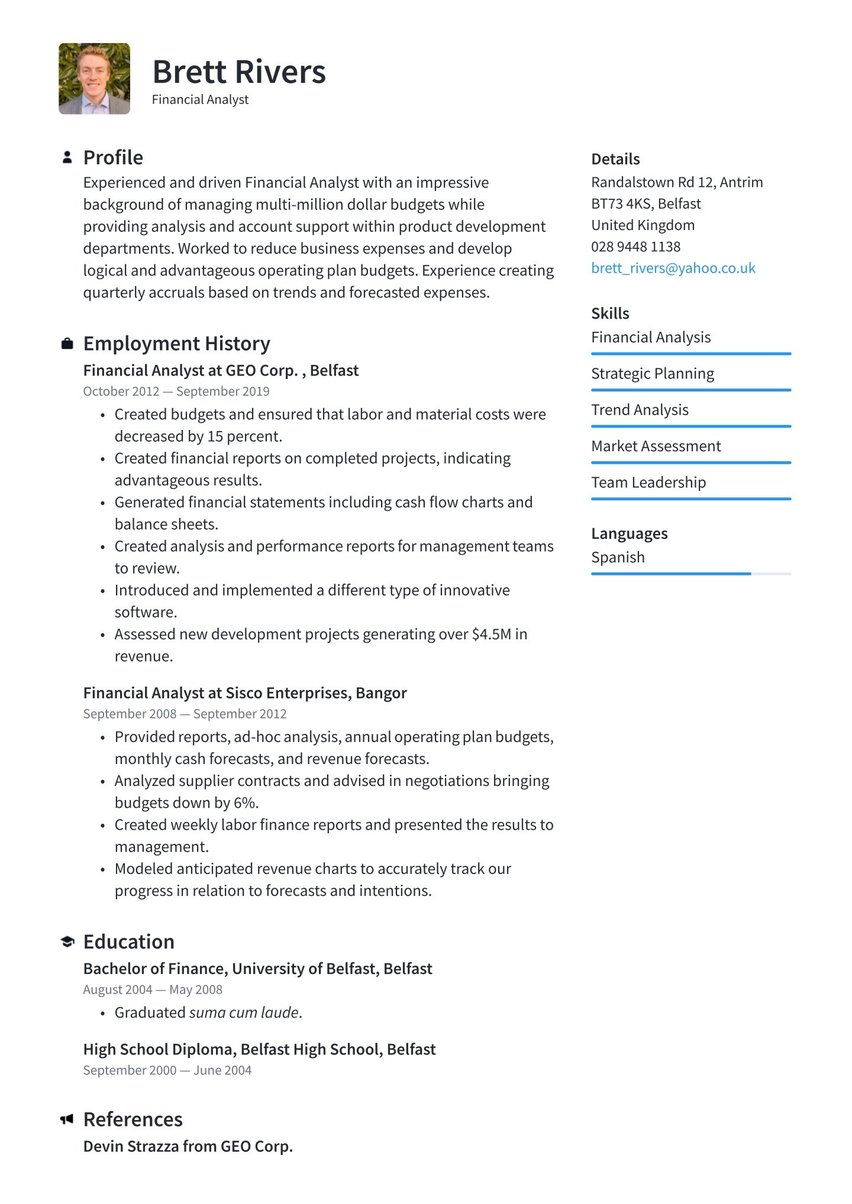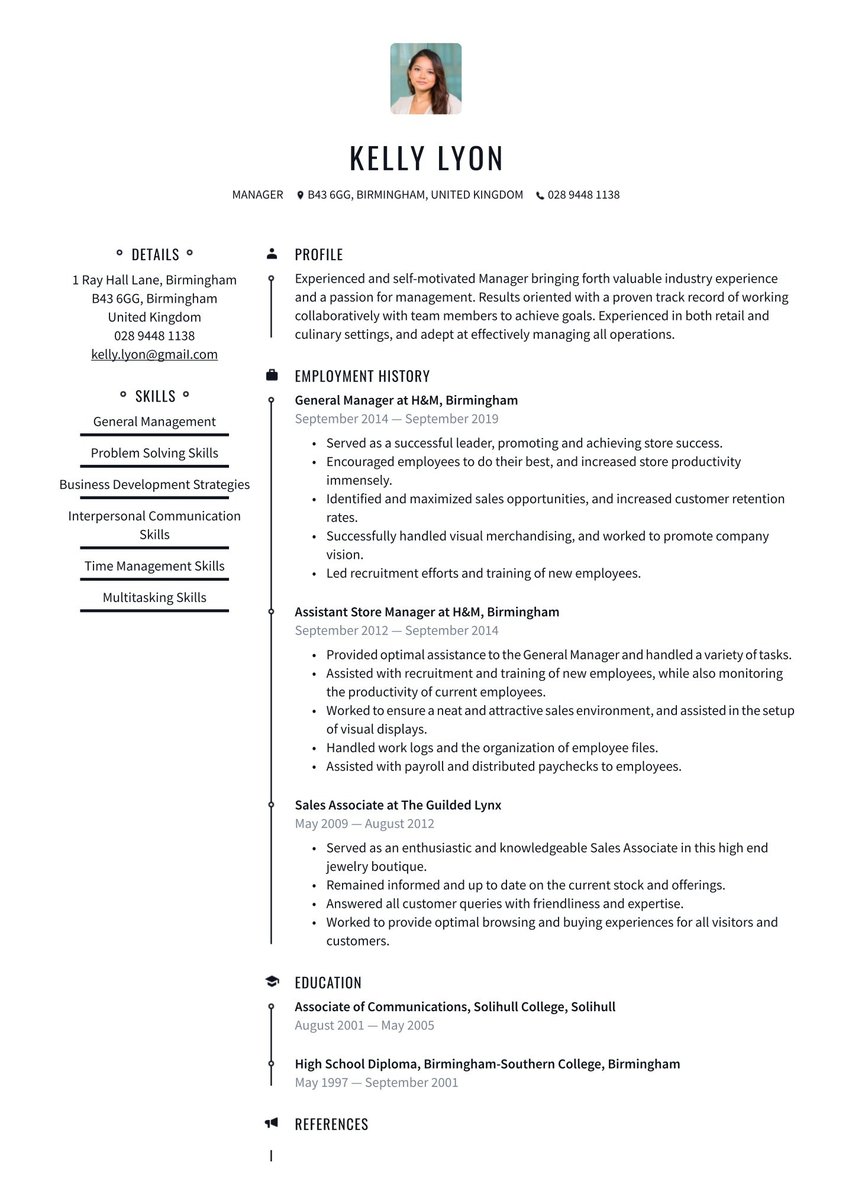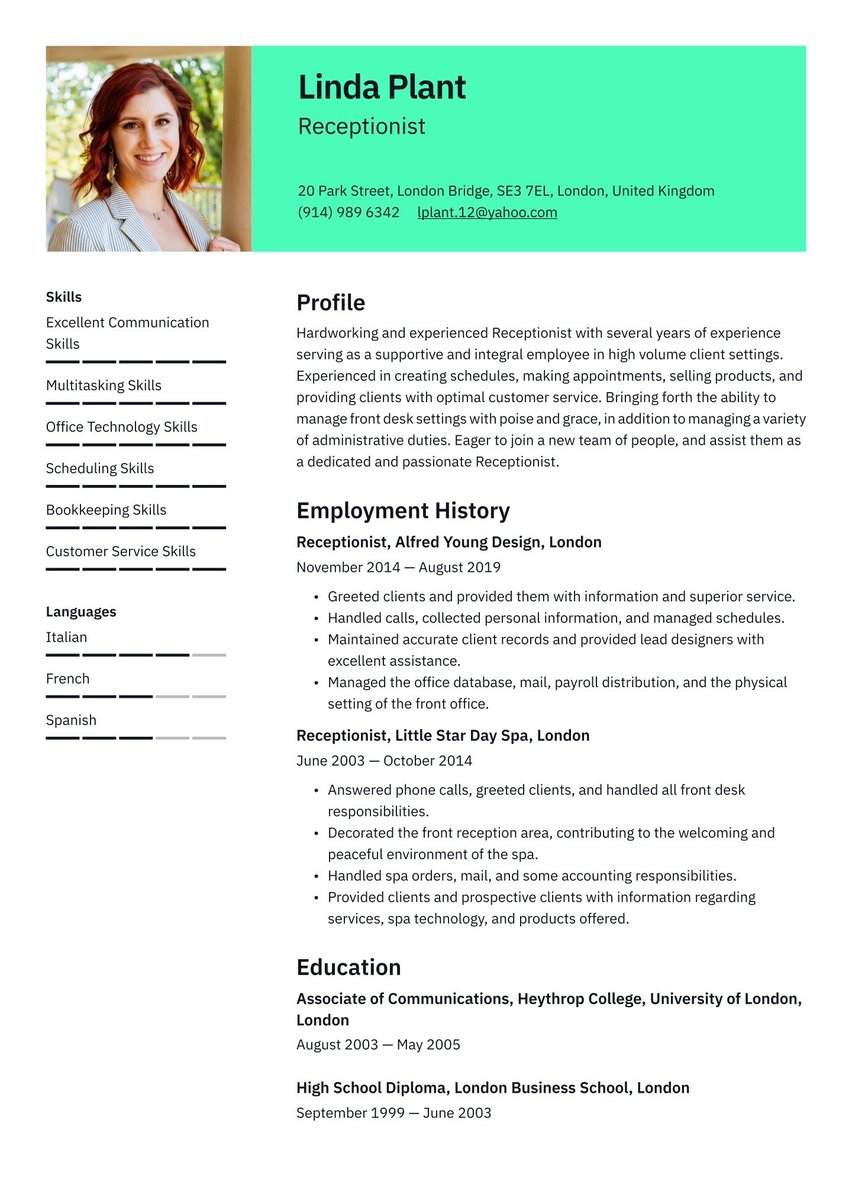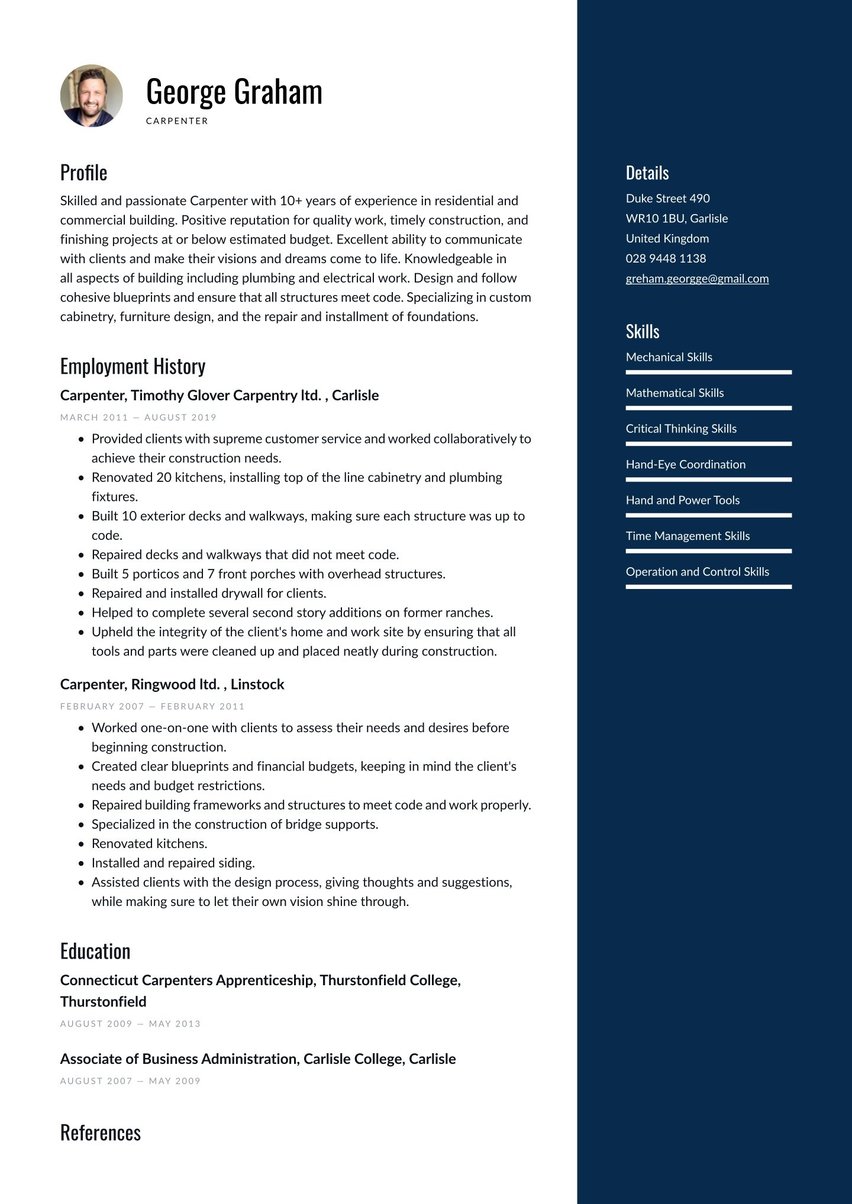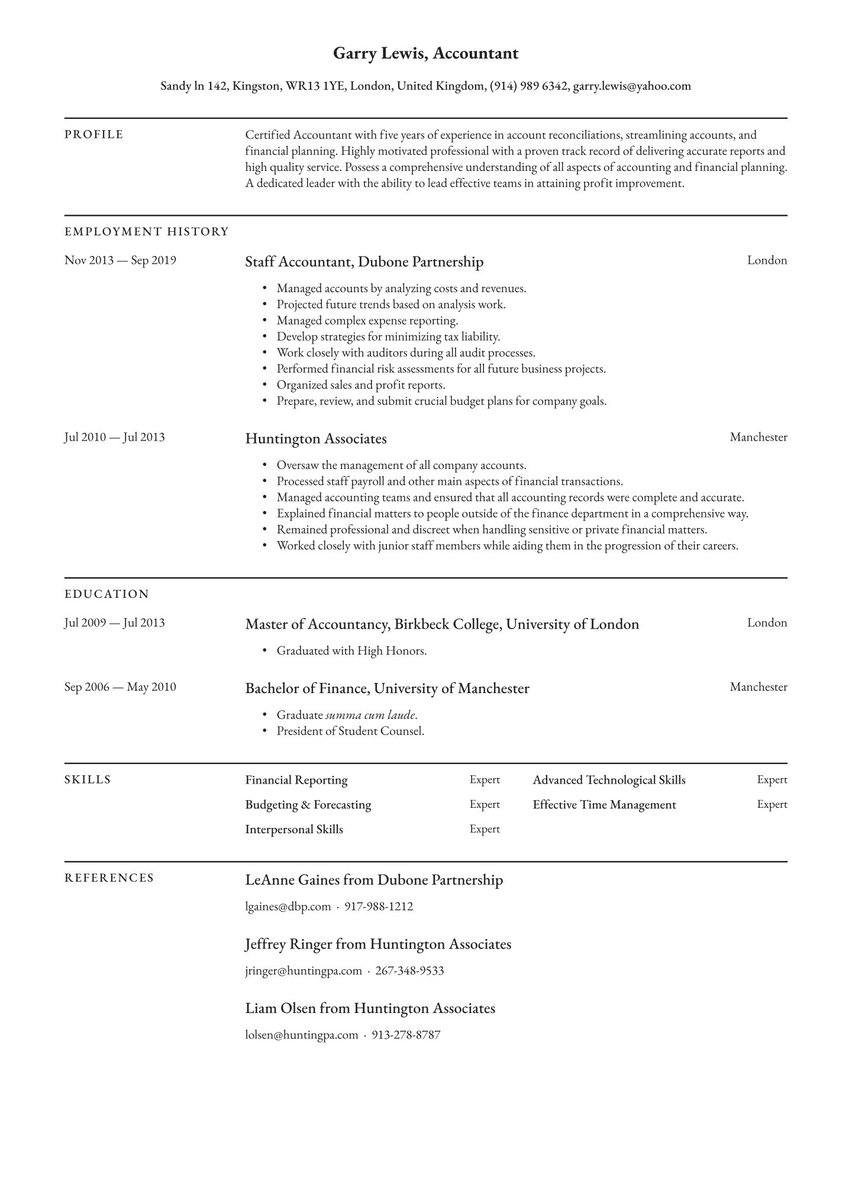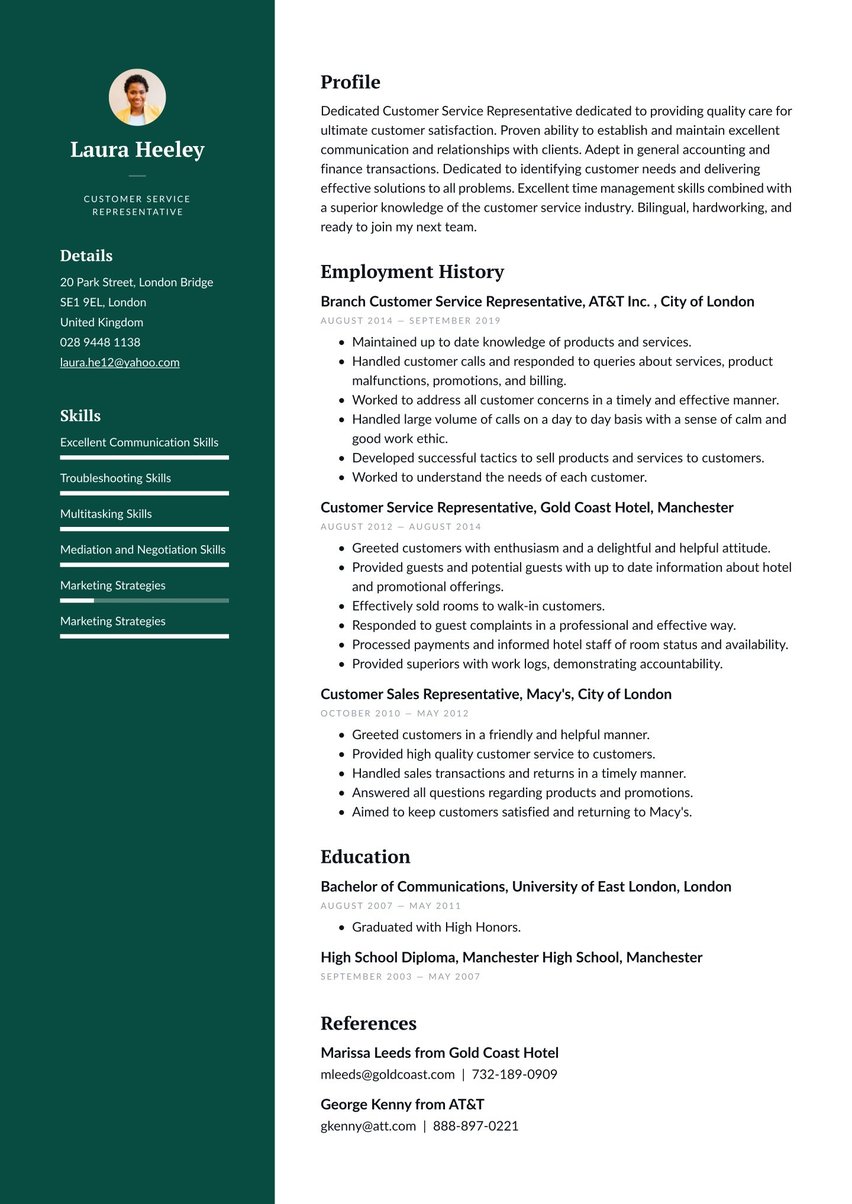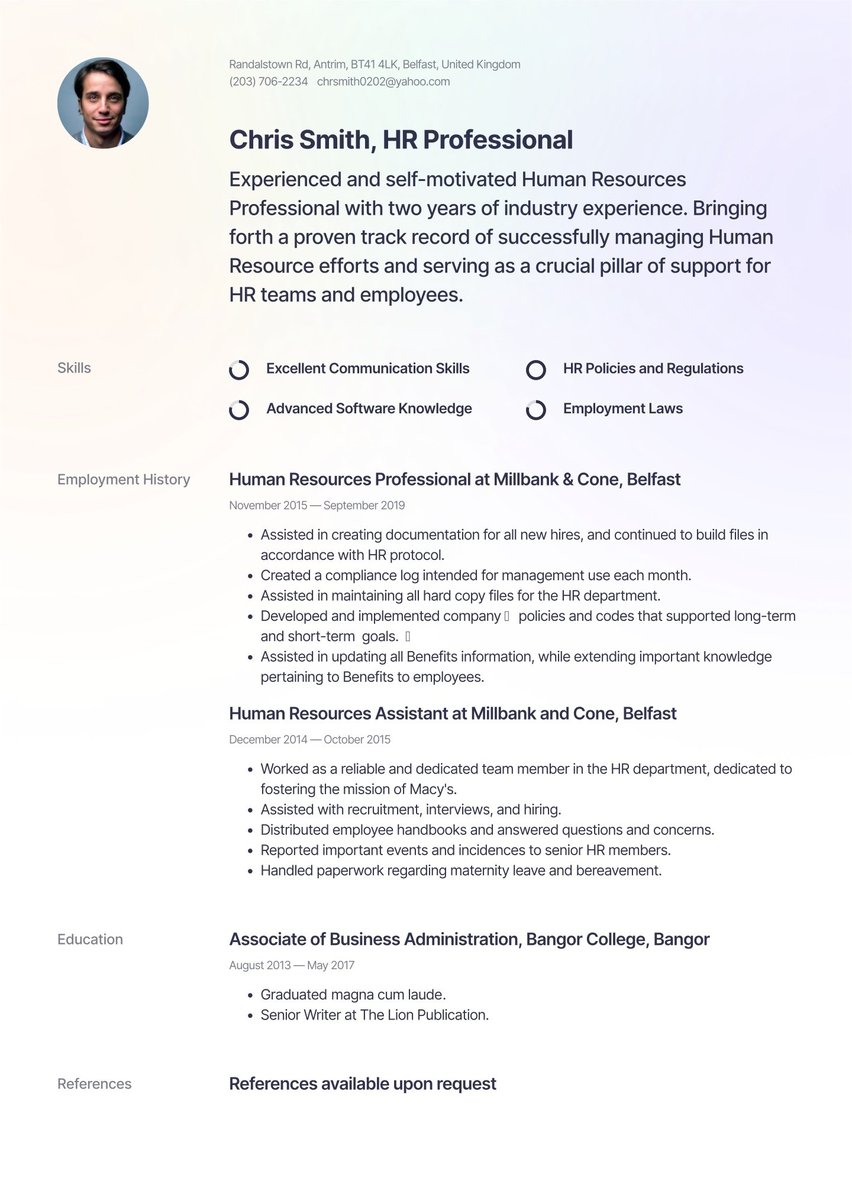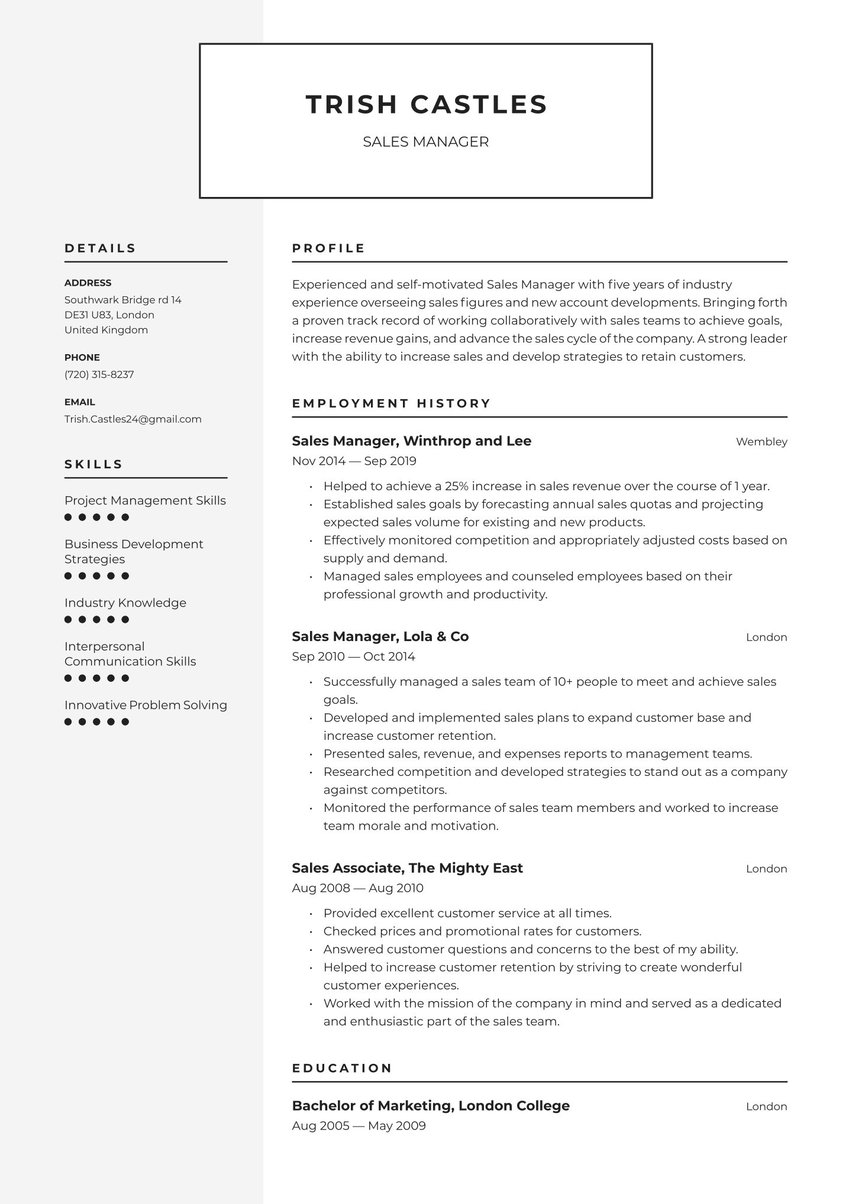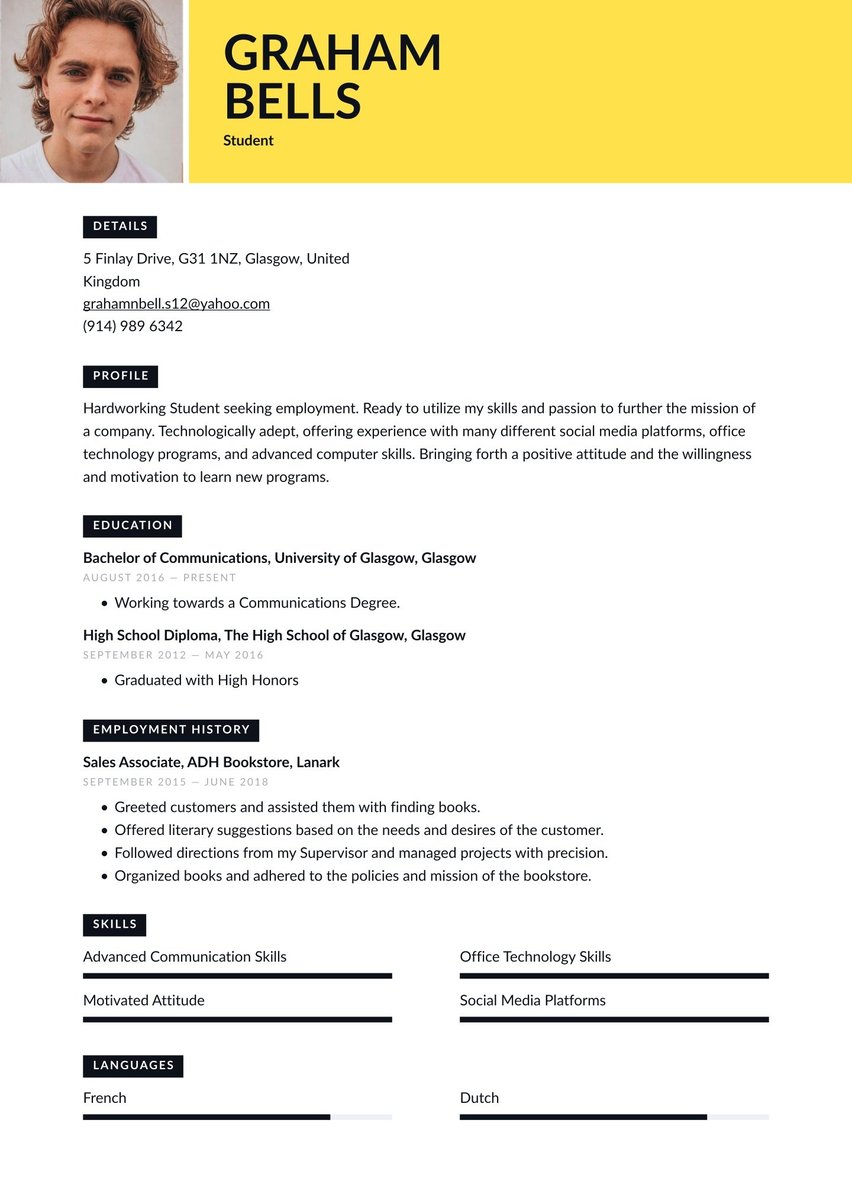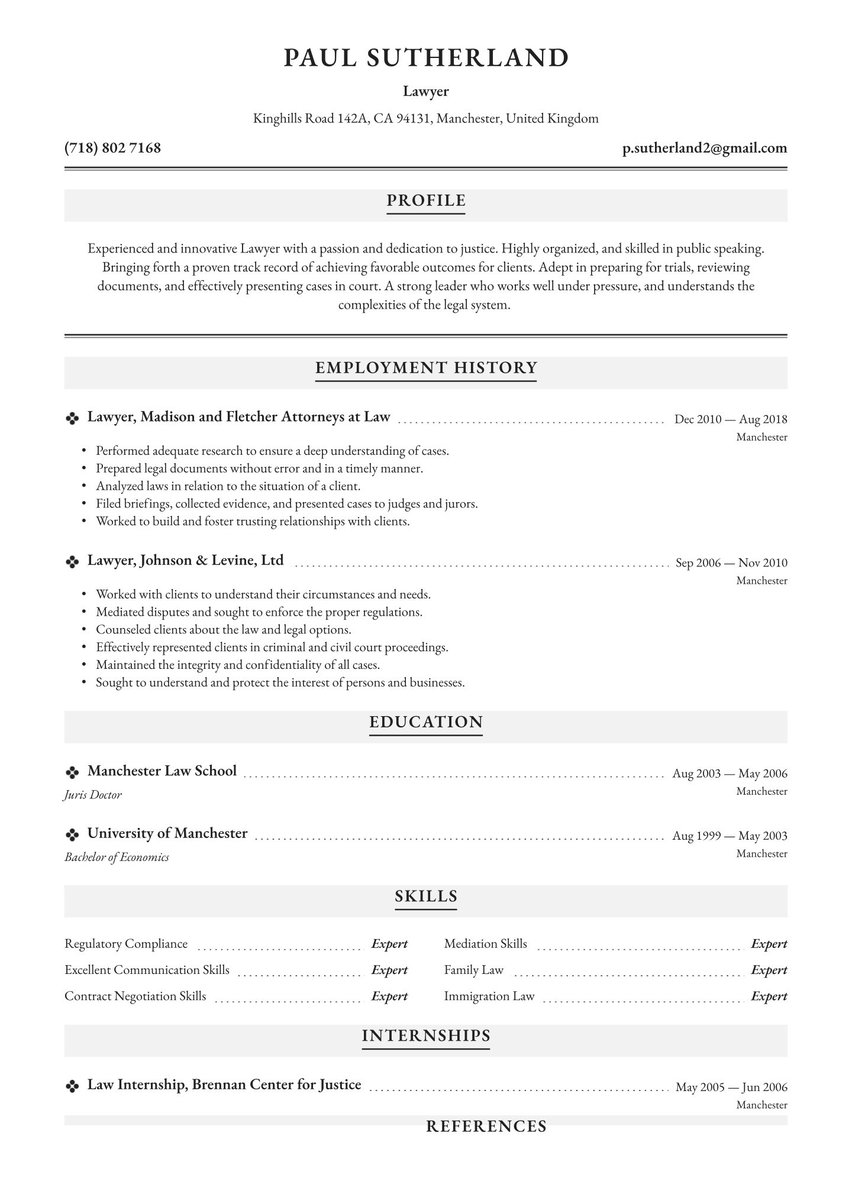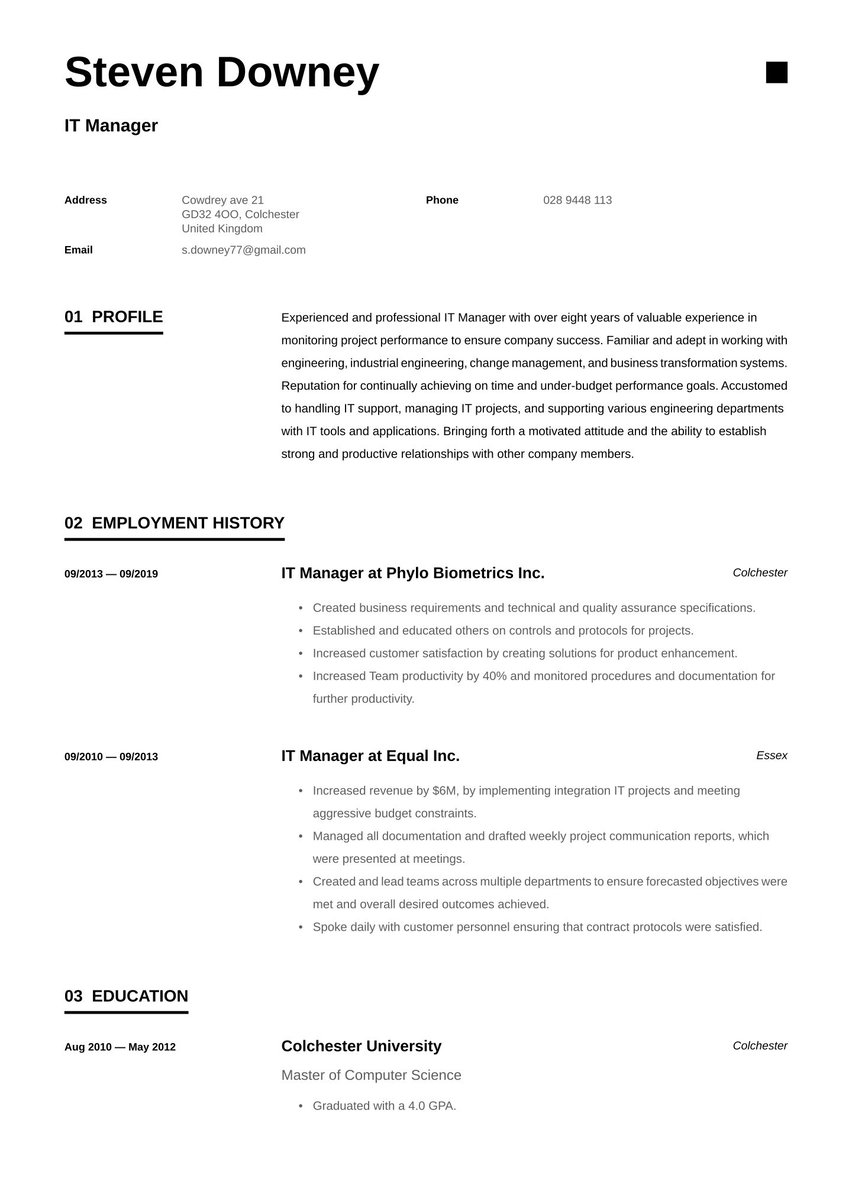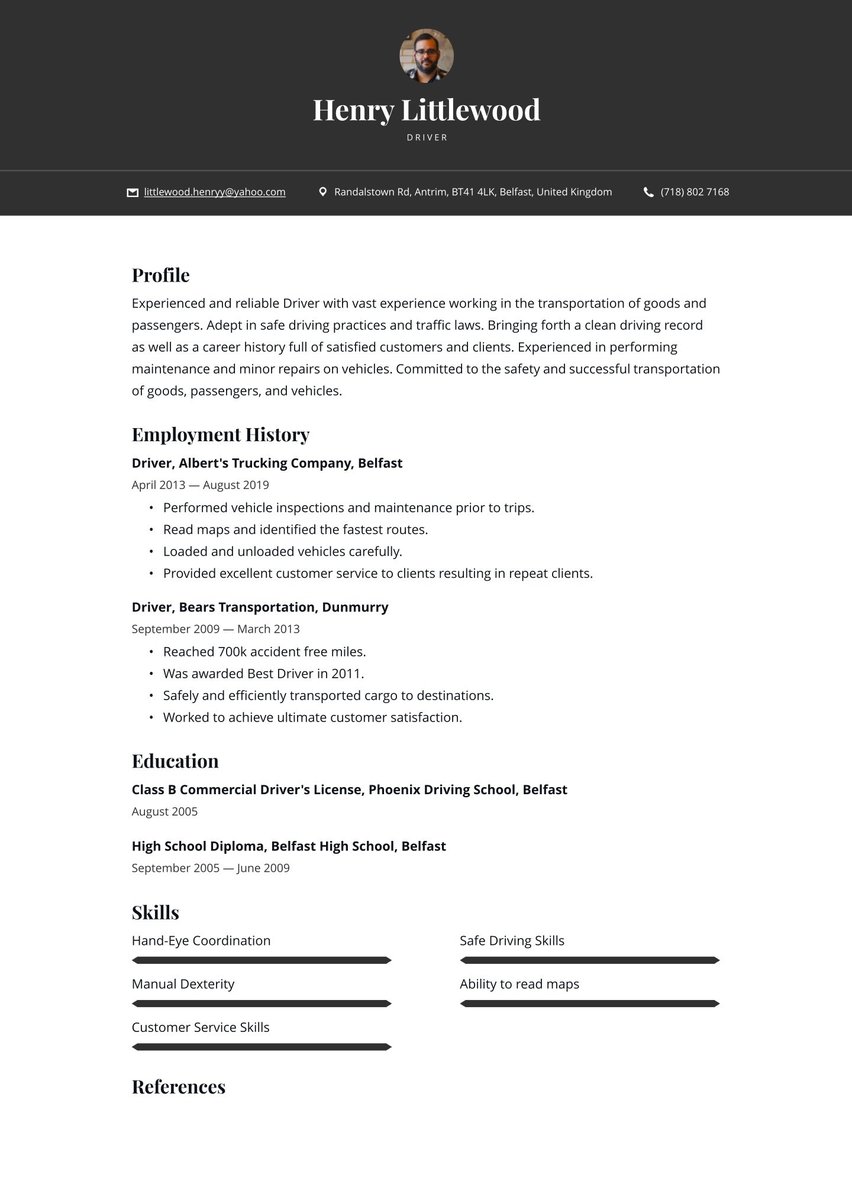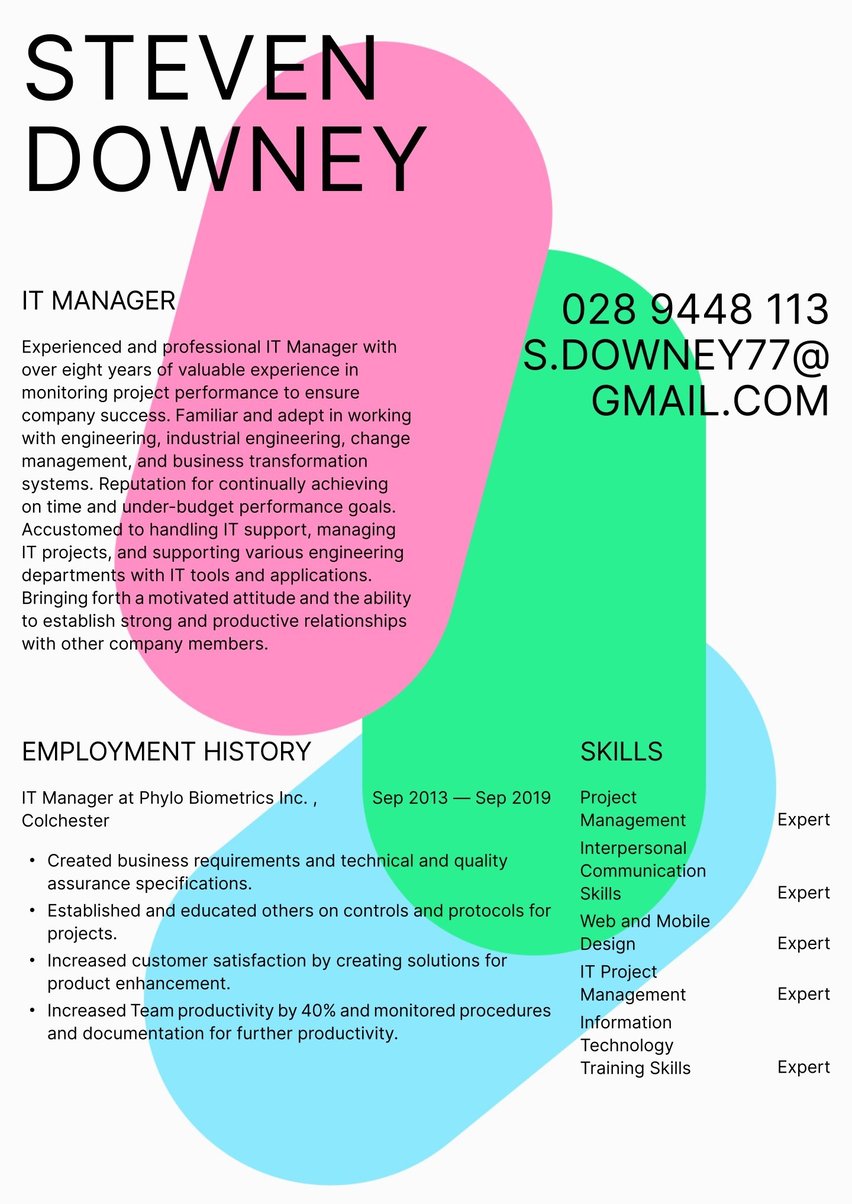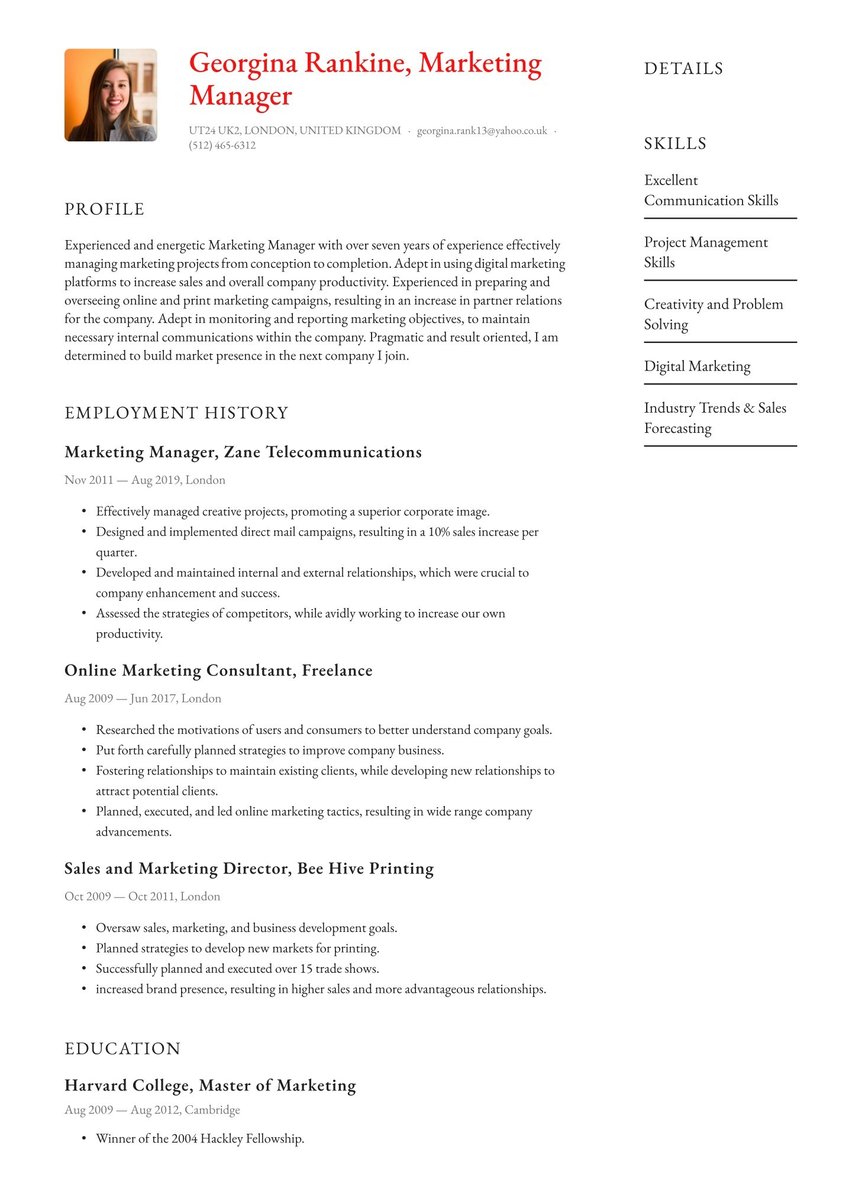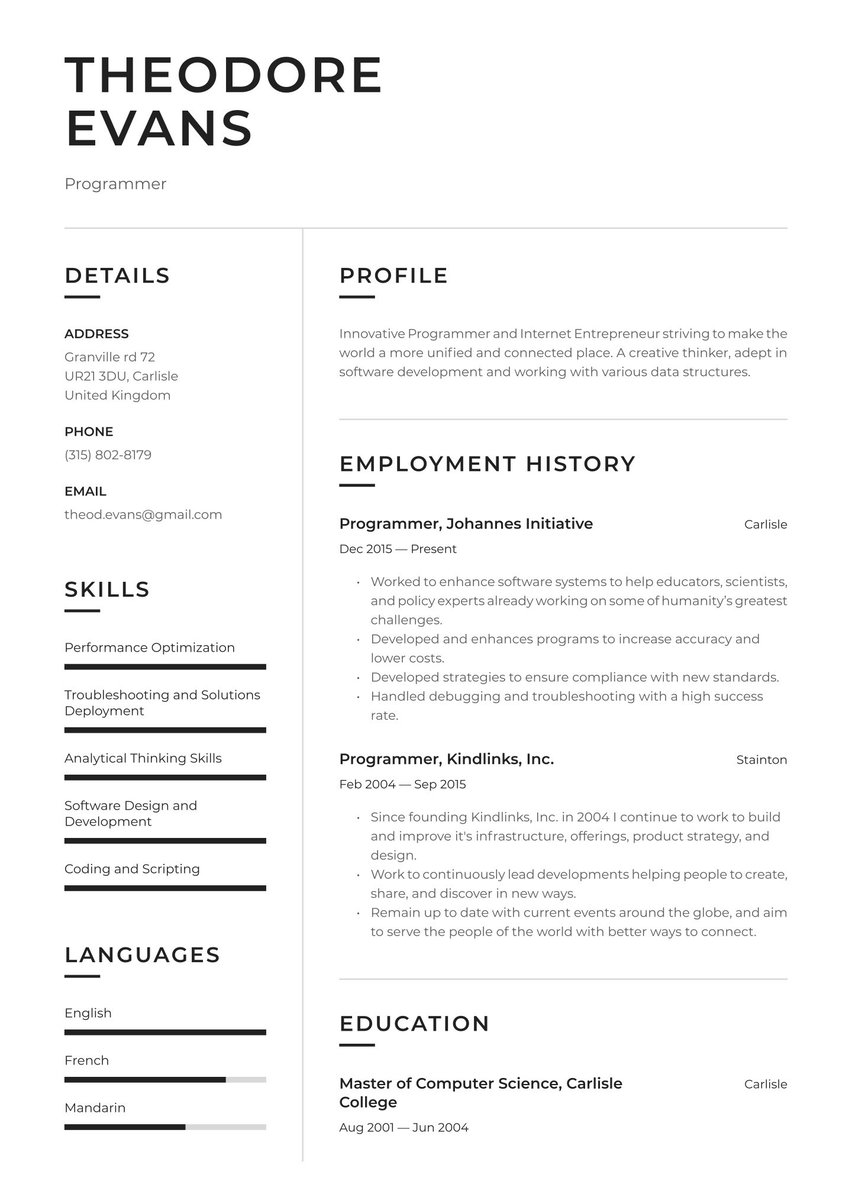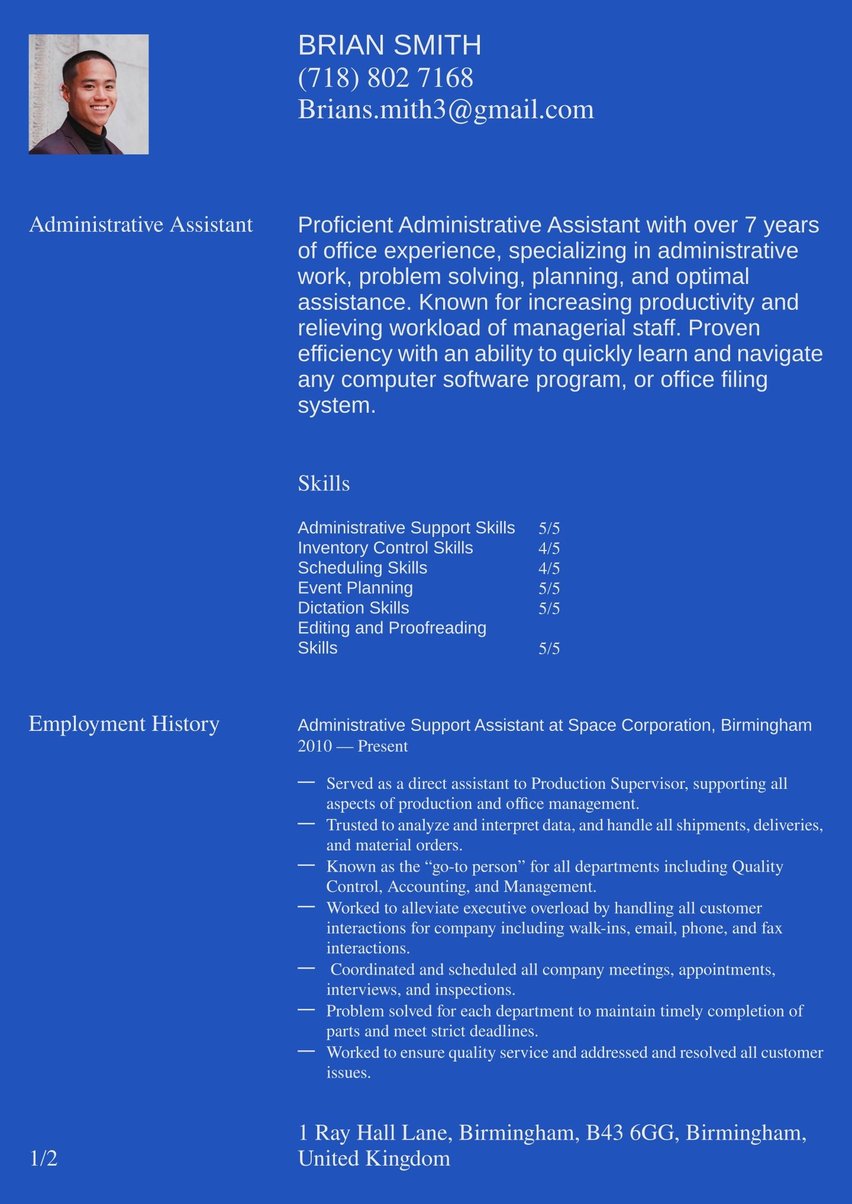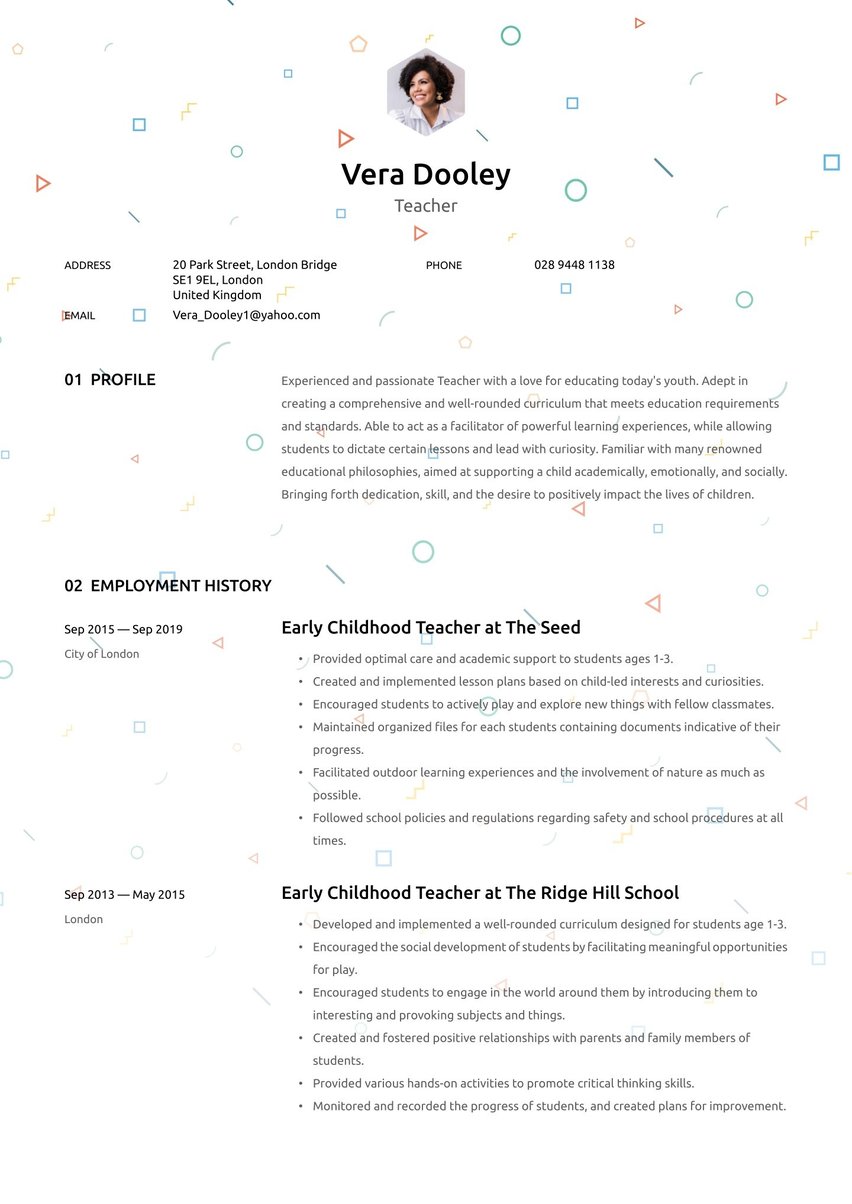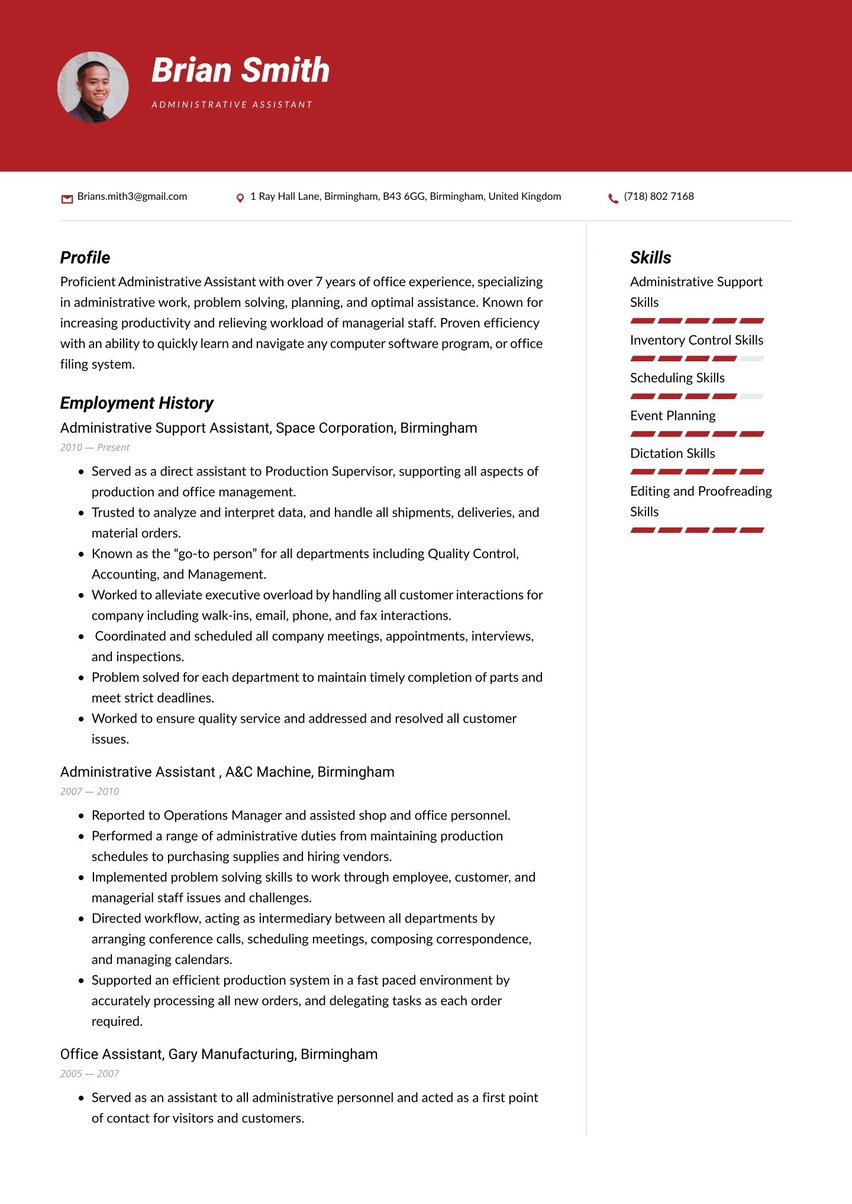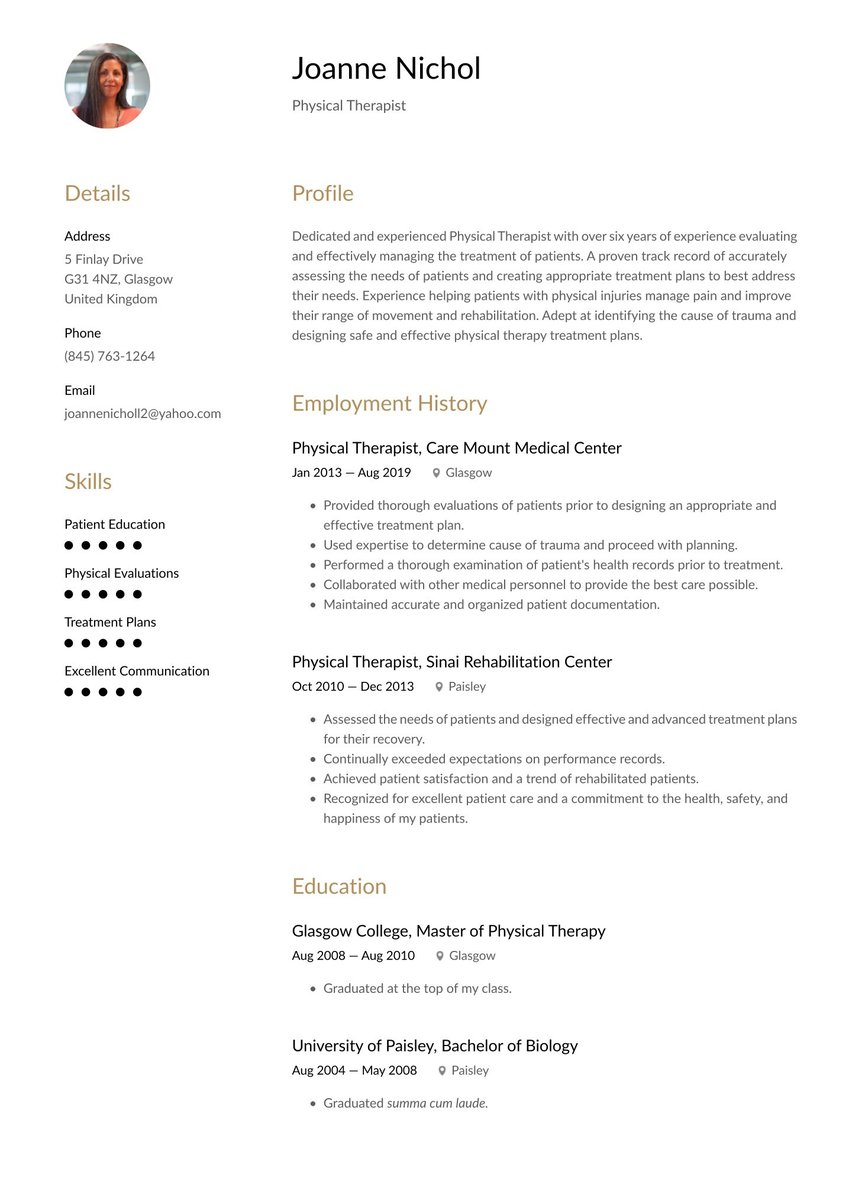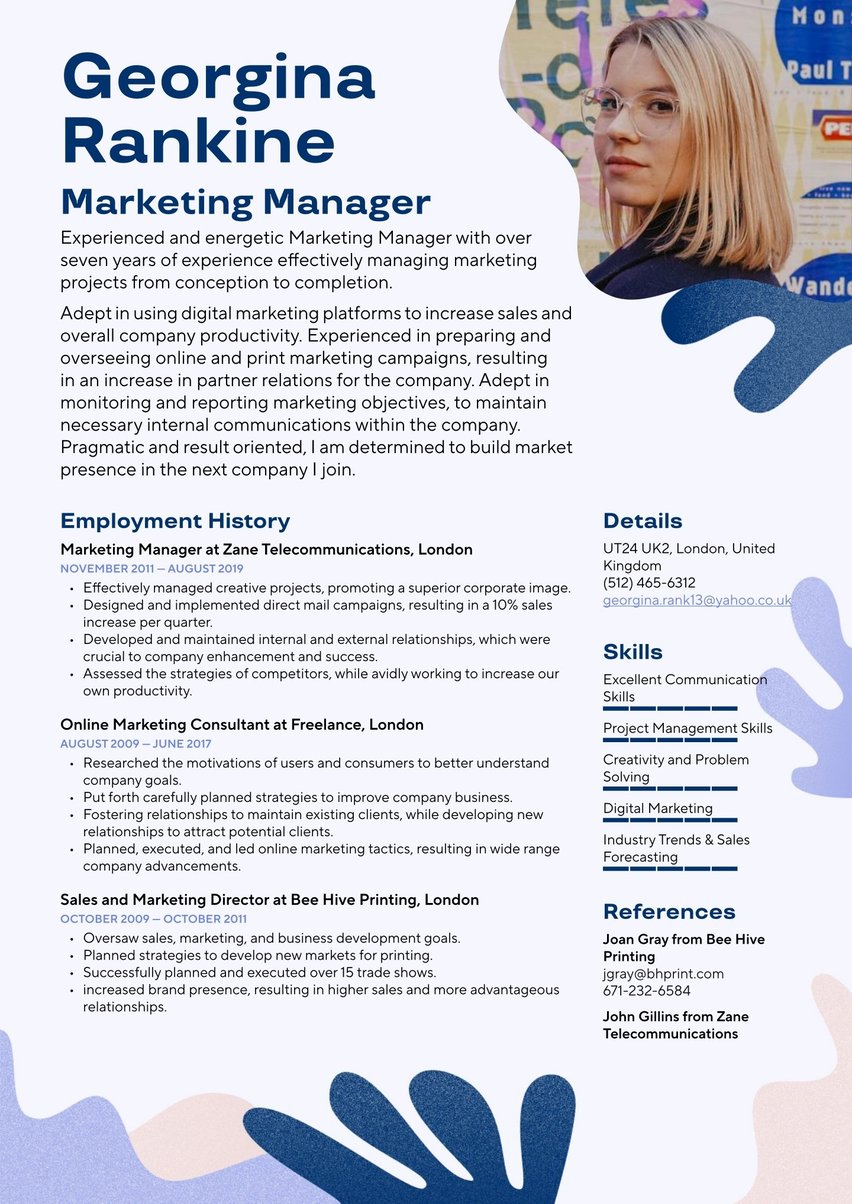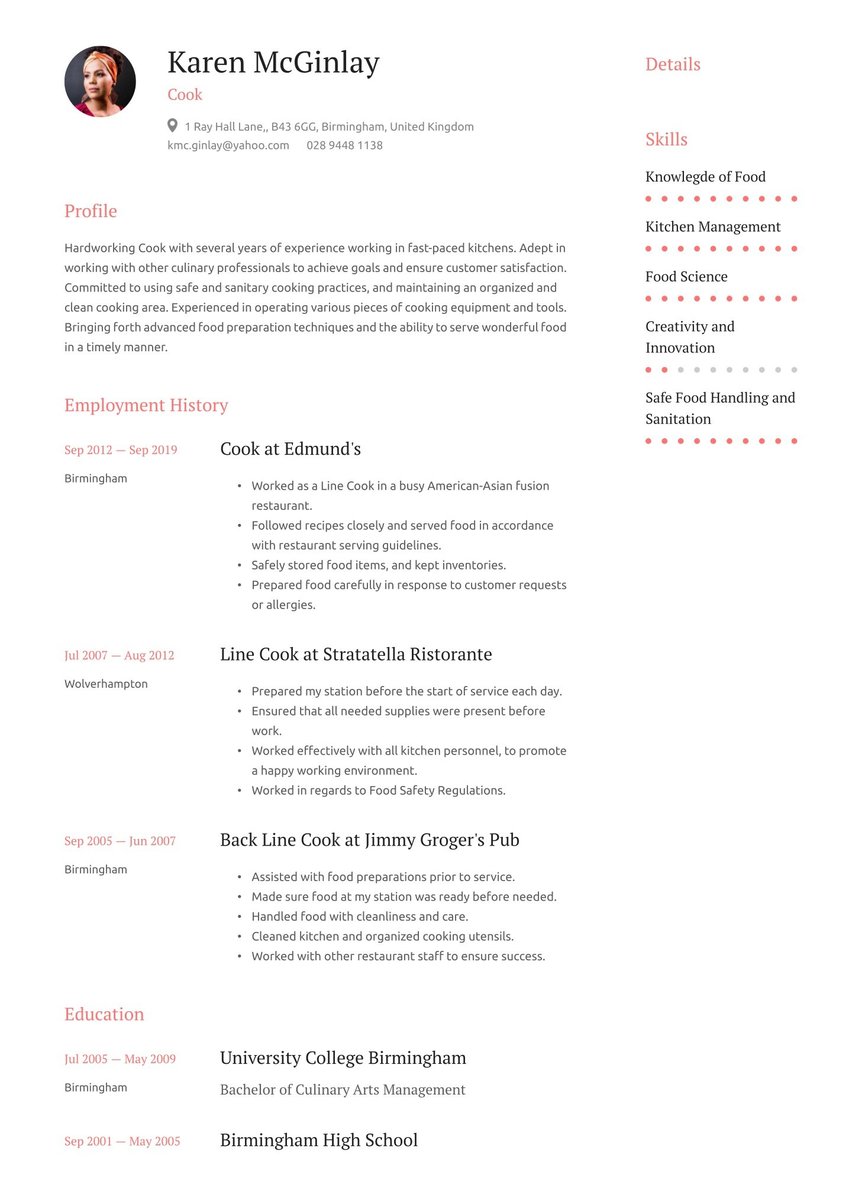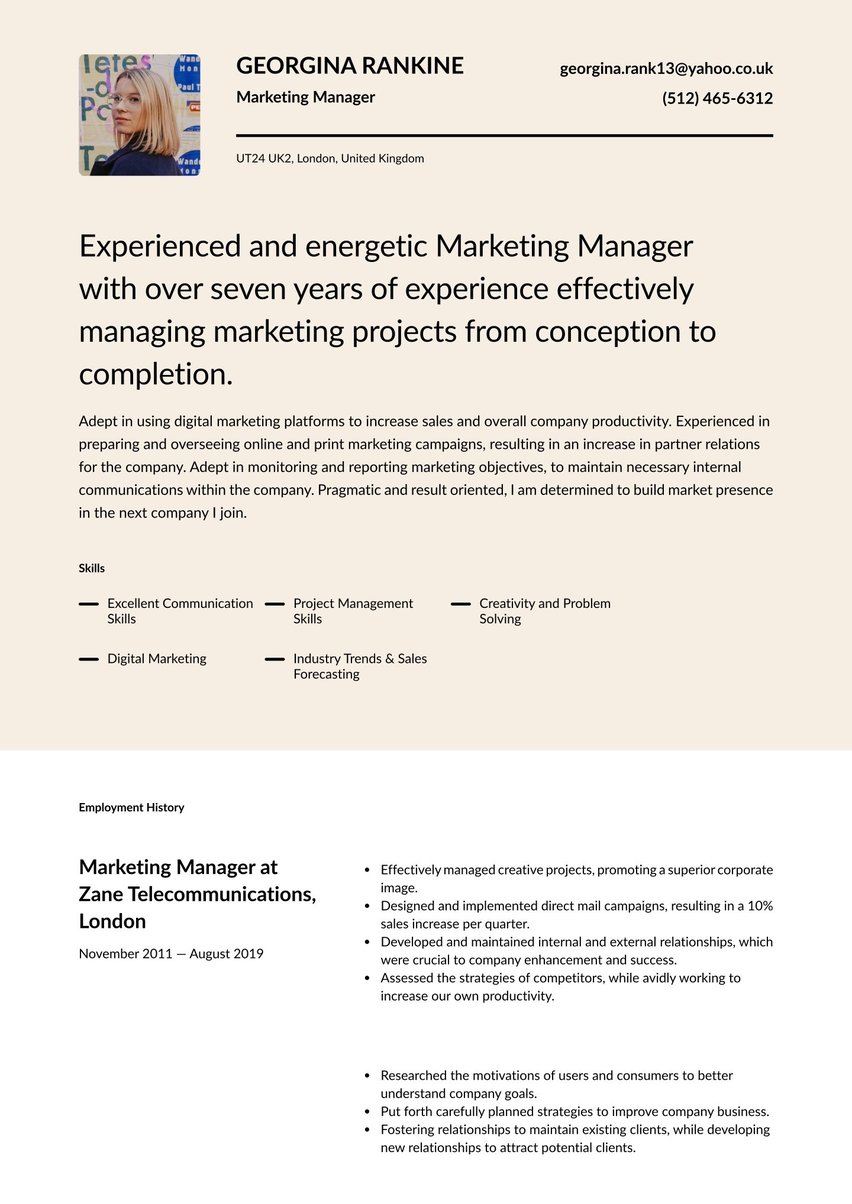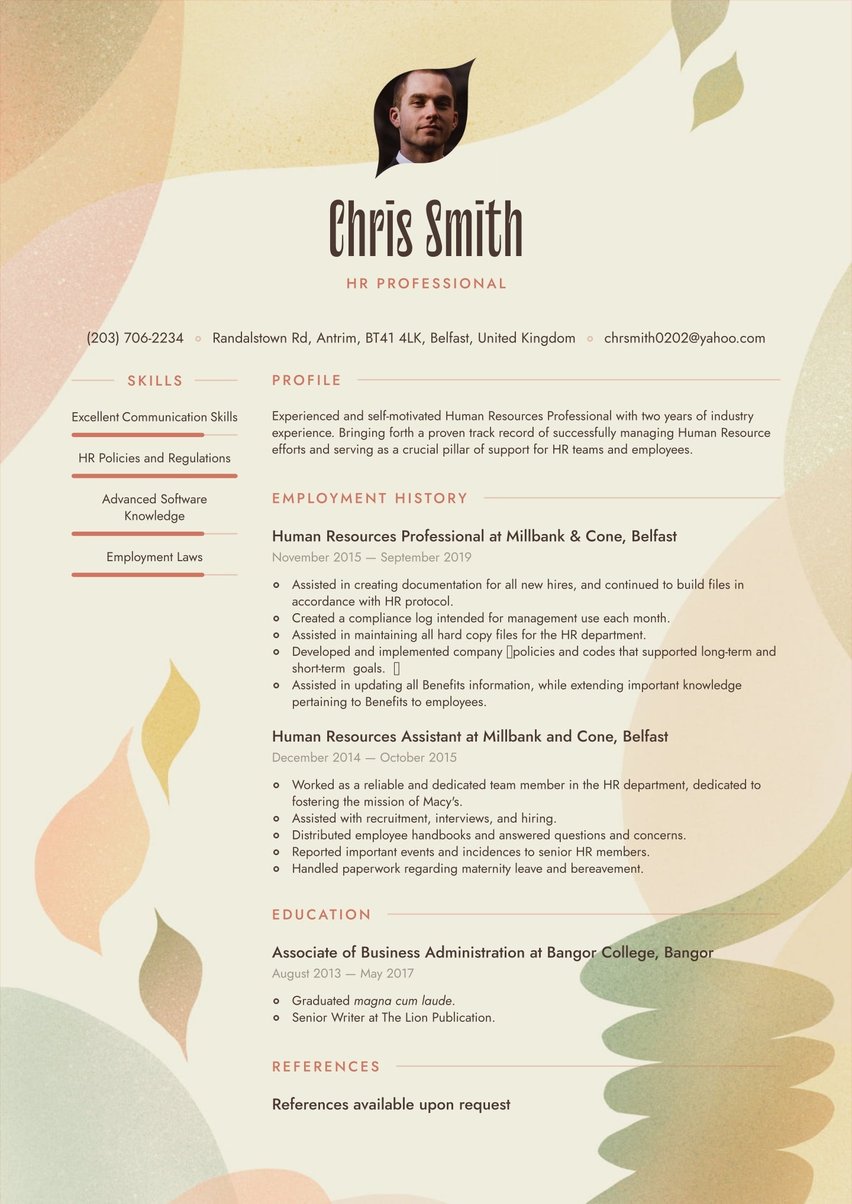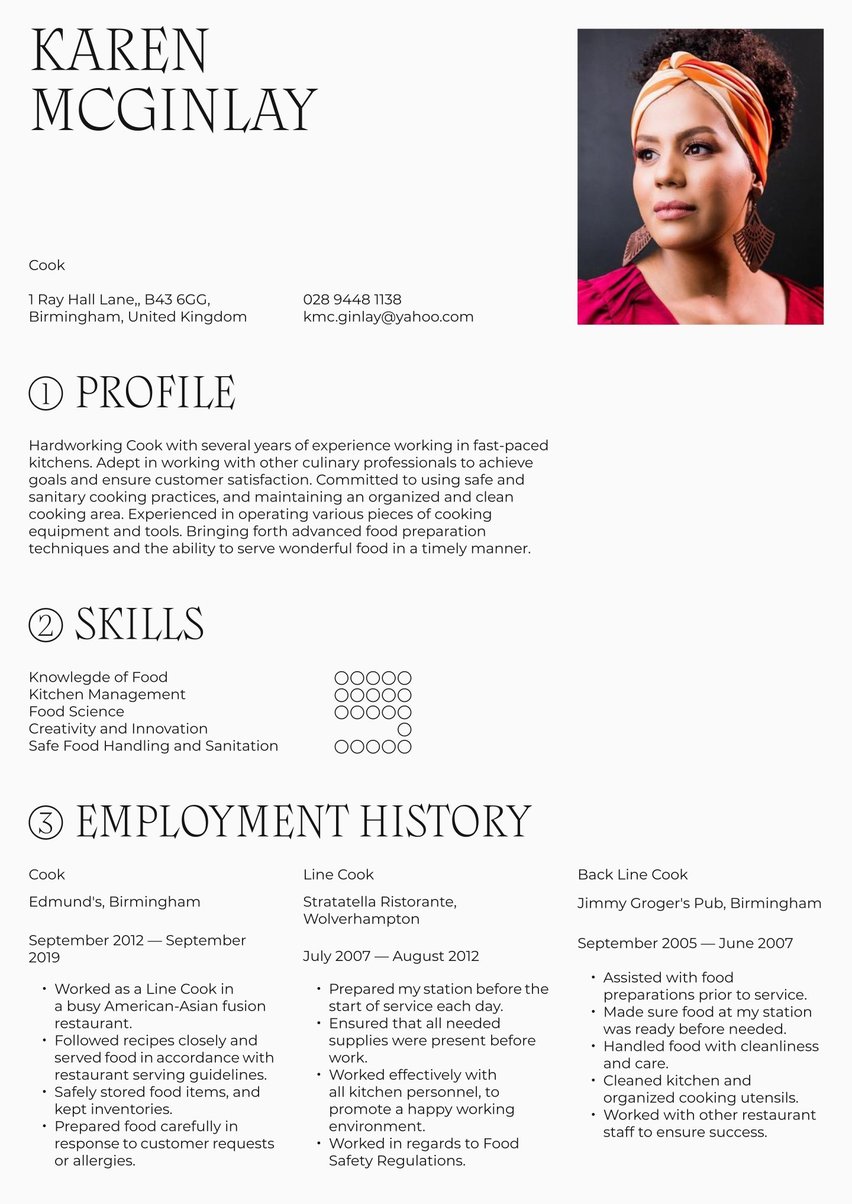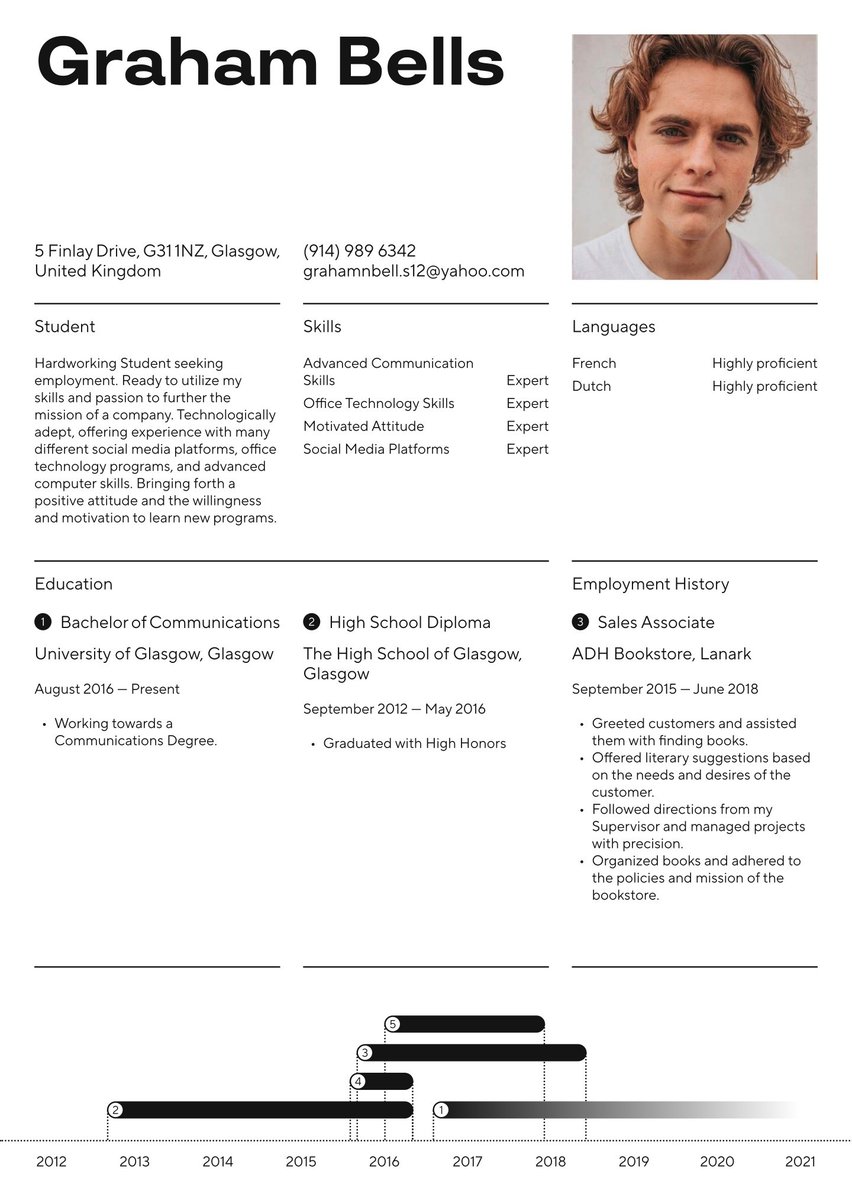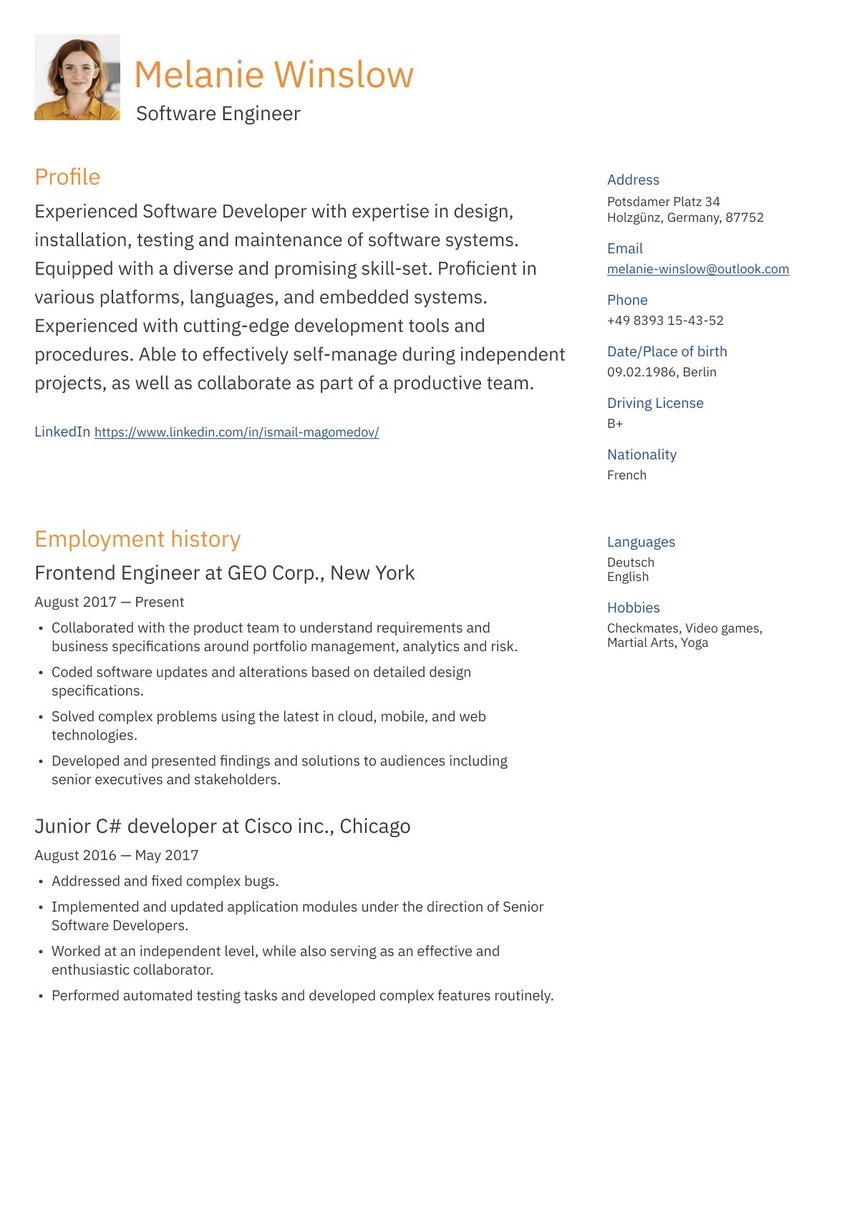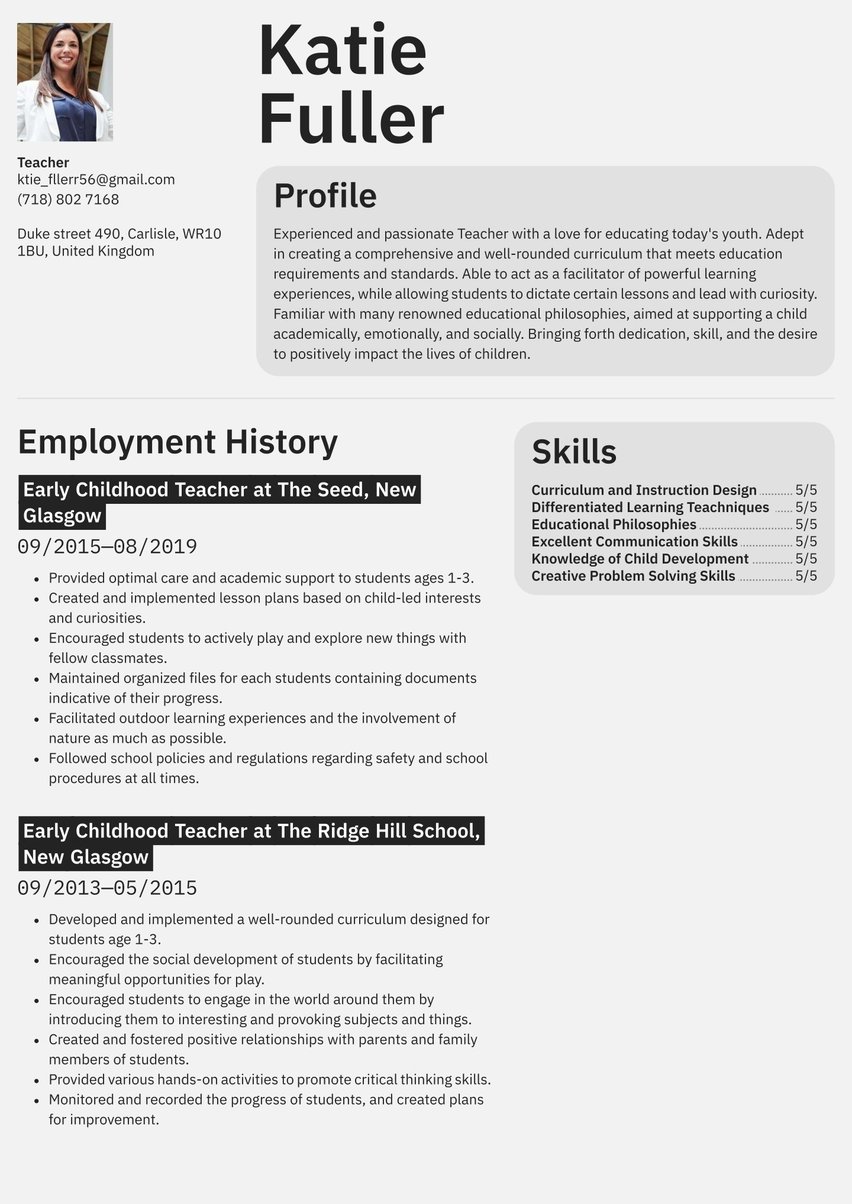Highly skilled Java Developer with 8 years of experience in designing, developing, and maintaining robust Java applications. Proficient in various Java frameworks, libraries, and tools. Committed to writing clean, efficient, and maintainable code while following best practices and industry standards.
01/2021 - 02/2024, Senior Java Developer, Handelsbanken, London
- Led the development of a large-scale e-commerce platform using Java, Spring Boot, and Angular
- Designed and implemented RESTful APIs to facilitate communication between front-end and back-end systems
- Optimised application performance through code refactoring, caching, and database tuning
- Mentored junior developers, promoting best practices and conducting code reviews
- Collaborated with cross-functional teams to gather requirements and deliver high-quality solutions
02/2016 - 02/2021, Java Developer, Handelsbanken, London
- Developed and maintained Java-based applications using Spring Framework and Hibernate
- Implemented unit and integration tests using JUnit and Mockito to ensure code quality
- Participated in Agile development processes, including Sprint planning, daily stand-ups, and retrospectives
- Integrated third-party APIs and libraries to extend application functionality
- Contributed to continuous integration and deployment pipelines using Jenkins and Docker
Relevant coursework: Data Structures and Algorithms, Software Engineering, Database Systems
- Languages: Java
- Java EE
- JavaScript
- HTML
- CSS
- Frameworks and Libraries: Spring Boot
- Spring MVC
- Spring Data
- Hibernate
- JPA
- JUnit
- Mockito
- Databases: Oracle
- MySQL
- MongoDB
- Tools: Git
- Jenkins
- Docker
- JIRA
- IntelliJ IDEA
- Methodologies: Agile (Scrum
- Kanban)
- Test-Driven Development (TDD)
- Object-Oriented Programming (OOP)
Your Java developer’s CV is an opportunity to step out from behind the keyboard and show employers exactly who you are. You’re not just another Java programming pro but a well-rounded problem-solver with various sought-after skills to bring to the table.
There are various ways to go about this, but ultimately, success lies in knowing your lingo. We’re not just talking about Java script. We’re talking about the language of hiring managers: a well-written CV.
Computer in hand, the employment world as a Java Developer is your oyster. But how you develop your CV will depend on which field you have your eye on, be that specialist IT firms, the manufacturing industry, or even financial services. We’ll help you decode the CV writing process to ensure you never miss out on a job opportunity again.
CV guide for a Java Developer CV
Why not make this project a team effort? At Resume.io, we have hundreds of guides and CV examples that span 150+ professions. What’s more, our CV builder goes one step further towards simplifying the creation of a job-winning CV.
This CV guide and corresponding Java Developer CV example will cover the following:
- How to write a java developer CV
- Choosing the right CV format for a Java developer
- How to add your contact information
- Using summaries
- Adding your Java developer experience
- Listing education and relevant experience
- Picking the right CV design/layout
- What the Java developer market looks like, and what salary you can expect
How to write a Java Developer CV
The first step in writing your Java developer CV is understanding what sections to include. Your CV should contain the following elements:
- The CV header
- The CV summary (aka profile or personal statement)
- The employment history section
- The CV skills section
- The education section
Approach your job application like you would any technical issues at work. You need to analyse the needs of potential employers and update your CV content accordingly with the appropriate requirements.
Attention to detail is a must in your line of work, so nailing your job application goes hand in hand with demonstrating that you possess the qualities of a Java developer who really knows how to get the job done.
To help get you started, we’ve developed a formula you can apply to your CV to make sure it catches the eye of any hiring manager:
- Lead with accomplishments: Make your accomplishments at work the star of the show, not your responsibilities. Employers will want you to take the time to explain the results you’ve driven by applying your skills in the workplace.
- Personalise your CV: No two companies have matching business objectives. Your approach to your CV’s content should also adapt accordingly. Tailor your CV with their goals in mind. This will ensure your application gets a fair shake during the screening process.
- Polish your CV’s design: The tech industry is fast-moving, and you will often face tight deadlines. Channel this energy into your CV’s design. Don’t be afraid to pick a professional or modern Java developer CV template with a twist like a pop of colour.
- Don’t neglect keywords: Double-check that your CV is filled with the appropriate keywords to prevent it from being filtered out by the CV scanning software.
Optimise for the ATS
ATS is a term that’s thrown around a lot in the world of CV writing and job seeking. So, what does it mean, and how is it used in today’s job market?
ATS stands for Applicant Tracking Systems. Companies use this software to filter out applicants without relevant keywords in their applications. Algorithms usually drive the ATS. So, if you want your CV to land on the desk of human hiring staff, there’s a simple step you can take to guarantee your application isn’t eliminated.
Be thorough and comb through the job description for keywords. Once you’ve identified them, it’s just a matter of including them as naturally as possible in your CV’s content. Here are some examples of how to spot and include keywords that are important to the job that you’re applying to:
- Spring framework knowledge. Suppose a platform such as Spring or Java EE is mentioned in the job description. It’s a good idea to mirror the language they use in your CV while remaining honest about your level of familiarity with the framework.
- Linux-based development. Including an explicit nod to the operating system you have experience working with - if it’s mentioned in the job description - shows you have the necessary skills.
- Agile development or methodology experience. Every workplace has its own way of working. If that’s mentioned in the job description and it rings true to your experience, then remember to include it.
- Postgres, MySQL. Data repositories you are familiar with may be important keywords to identify and include in your CV.
- Client liaison experience. Keywords relating to your soft skills or non-technical know-how are just as important as those relating to your hard skills.
Choosing the right CV format for a Java Developer
Clear communication is vital as a Java developer. So, picking the right CV format is the first step to making sure you’re headed on the right track. In general, reverse chronological is the ideal format for most Java developers. This format highlights your employment section and outlines your career up until now in reverse chronological order.
If you’re just starting out in your Java developer career, and your employment section isn’t quite as compelling as you’d like it to be, you could alternatively consider the functional format. This will shift the focus onto your skills and what else you can offer employers.
You have plenty of options in our CV builder. While perusing the variety of CV templates, consider how you want to present yourself to each employer. Remember, there’s nothing wrong with having a few versions of your CV in different formats. The more tailored and specific for a role your application is to the job and company you’re applying to, the better.
Include your contact information
Once you’ve successfully captured a hiring manager's interest, the next step is ensuring it’s as easy as possible for them to get in touch with you. They will only have so much time to spend on applicants they want to learn more about. So ensure they can reach you easily if you’re at the top of their list!
The best way to do this is to ensure your contact information is easily accessible and professionally presented. Here are some pointers you should consider when listing contact information on your CV.
- Full name and title. List your first and last name. Include the title of the position you are applying for.
- Professional email address. Unprofessional email addresses should have no place in your CV. Instead, use a clean format like firstname.lastname@gmail.com.
- Phone number. Double-check that your contact information is up-to-date and list a number where you can be readily contacted. You should also have a professional voicemail greeting.
- Location. Only list your city. Including your full address on your CV is now considered both old-fashioned and unsafe. If applicable, you can also note 'Willing to Relocate'.
- LinkedIn. Include your LinkedIn profile if you feel that it is relevant, and most importantly, if you are active on it.
Don’t include:
- Date of birth: Listing your date of birth is not necessary, and you could put yourself at risk of age discrimination.
- Personal details: You don’t need to share your marital status, social security number, passport number, or other personal details on your CV.
Rachel Albero
Java Developer
07361774923
rachel.albero@email.com
Rachel Albero
Java Wizard
07361774923
rachalbzz542@email.com
Make use of a summary
As a Java developer, you’ll often work closely with various professionals. This could range from other web developers to designers to software engineers. This requires excellent communication skills. Nothing screams excellent communication like a compelling yet concise CV summary section.
In short, your CV summary aims to convey who you are as a professional and why you’re worth a shot at the role you’d love to step into. The only catch is that being concise is key. In two to three sentences maximum, you need to craft a compelling reason why a hiring manager should read on.
A great way to captivate a busy hiring manager’s attention is by using action verbs. For a Java developer, these could be verbs like “analyse”, “resolve”, “audit”, or “deliver”.
It’s important to remember that your CV summary isn’t just a summary of your CV content. You’re presenting a snapshot of what you can achieve when your various skills, education, and experience come together. For example, “Skilled in achieving seamless user experiences through rigorous auditing.”
Ultimately, this is your chance to put your best foot forward as a professional. Consider what value you have and what separates you from other applicants. Once you have the answers to these questions, you can start creating a CV summary that will encapsulate the very best of you and, above all, underline why you should be the top pick for employers.
If you need a helping hand getting started, we’ve got some related CVs you can look at for inspiration. Some options that you might find interesting include our:
You can also find some adaptable Java developer CV sample summaries below:
Java Developer proficient in solving complex problems and collaborating with teams to deliver high-quality and creative solutions. Seeking to develop skill set in an environment with like-minded technology enthusiasts.
Experienced and detail-oriented Java Developer with four years of experience. Skilled at discovering and resolving programming bugs on front and backend, resulting in higher customer satisfaction ratings.
Seasoned Java Developer with 15+ years of experience collaborating with and leading teams to deliver high-quality solutions ahead of schedule. Expertise in optimising database performance and reducing average response time.
Outline your Java Developer work experience: your professional development
The employment section of your Java Developer CV will likely be the most important. List your work experience in reverse chronological order, starting with your most recent role at the top. If you have extensive experience, we recommend only including the last 10-15 years of employment on your CV to ensure you optimise the document’s limited space.
For each job role you include, you should create a subheading detailing the role's name, your employer, the dates of employment, and its location. Underneath each subheading, detail how you contributed to the role with concise bullet point statements. Feel free to omit “I” in your descriptions and focus on specificity by incorporating dynamic action verbs that encapsulate your key responsibilities.
Past or present tense?
Throughout your CV, aim to use the past tense when referring to roles and projects you’ve completed. You should use the present tense for the bullet points relating to your current role in the employment section.
Try to gear your bullet points toward communicating the quantifiable outcomes that your work made possible. Think about cause and effect here. What did the duties that you carried out in previous roles lead to? Why were these results significant?
For instance, “Led a development project resulting in 20% fewer bug tickets” is much easier for a hiring manager to understand the significance of, as opposed to “Created new backend for a client”. Employers will be looking for people who can bring value to their company, so you’ll likely earn brownie points if you can highlight that for them from the get-go.
Your input to previous roles could include improved communication among team members, positive feedback from clients, and even promotions that granted you more responsibility. No matter how small you feel your contribution was to a company, it’s much better practice to list what you achieved instead of just outlining your main responsibilities.
Being able to reflect on how you’ve grown professionally is a skill, so don’t shy away from results-based language. This will demonstrate your dedication to continual professional improvement.
If you’d like some ideas on how your employment history section could look, check out the example below:
Senior Java Developer at Handelsbanken, London
2021 - Present
- Led the development of a large-scale e-commerce platform using Java, Spring Boot, and Angular
- Designed and implemented RESTful APIs to facilitate communication between front-end and back-end systems
- Optimised application performance through code refactoring, caching, and database tuning
- Mentored junior developers, promoting best practices and conducting code reviews
- Collaborated with cross-functional teams to gather requirements and deliver high-quality solutions
Java Developer at Handelsbanken, London
2016 - 2021
- Developed and maintained Java-based applications using Spring Framework and Hibernate
- Implemented unit and integration tests using JUnit and Mockito to ensure code quality
- Participated in Agile development processes, including Sprint planning, daily stand-ups, and retrospectives
- Integrated third-party APIs and libraries to extend application functionality
- Contributed to continuous integration and deployment pipelines using Jenkins and Docker
Include the relevant key skills that make you a great Java Developer
An impressive Java developer skills list should include hard and soft skills. A balance of both will highlight your expertise and unique selling points.
Hard skills are the technical skills you need to carry out your craft. But your soft skills shine a light on how you get it done and what you’d like to collaborate with.
The hiring manager and the ATS will scan your CV for relevant hard skills. These are often non-negotiable requirements for whatever role you apply to. However, soft skills might just be what helps you stand out during your job search.
They could include time management. After all, as a Java developer, you may be required to work to tight deadlines. Other soft skills include teamwork and problem-solving. Both are a big part of the lifecycle of any project a Java Developer undertakes. Consider how you frame your soft skills with some of the following points:
- Time management. After all, as a java developer, you may be required to work to tight deadlines or long projects which require careful consideration of scheduling dependencies.
- Teamwork. Even if you are the only java developer on a project, the nature of your job means there are usually multiple stakeholders. Understanding how to collaborate with them and overcome challenges together is a vital soft skill.
- Problem-solving. As a java developer, you are constantly solving technical problems. However, you are also solving problems outside of your technical know-how. For instance, when you decide how to motivate your team or how to raise a challenge with management. Problem-solving is essential for your job whichever way you look at it.
A fast-moving industry
Your hard skills will require continual development to stay up-to-date with the latest changes in the tech industry. Make sure you tweak the skills section of your CV accordingly through time. A hiring manager needs to know that you’re willing to adapt to the fast-moving industry that you work in!
Tweaking your skills list to suit each role you apply to is standard practice. Your aim should always be to create a CV that responds to the particular job you’re applying to. So, read the job description carefully, research the company thoroughly and figure out what skills they value the most. Then it’s just a matter of ordering them according to the priorities of this particular role!
If you need some more support with narrowing down what to include, you can enlist the help of our CV builder. There are several pre-written key skills to choose from that will help you get on the right track.
Here’s what the skills box looks like in our example of a CV for a Java developer.
Key Skills and Proficiencies
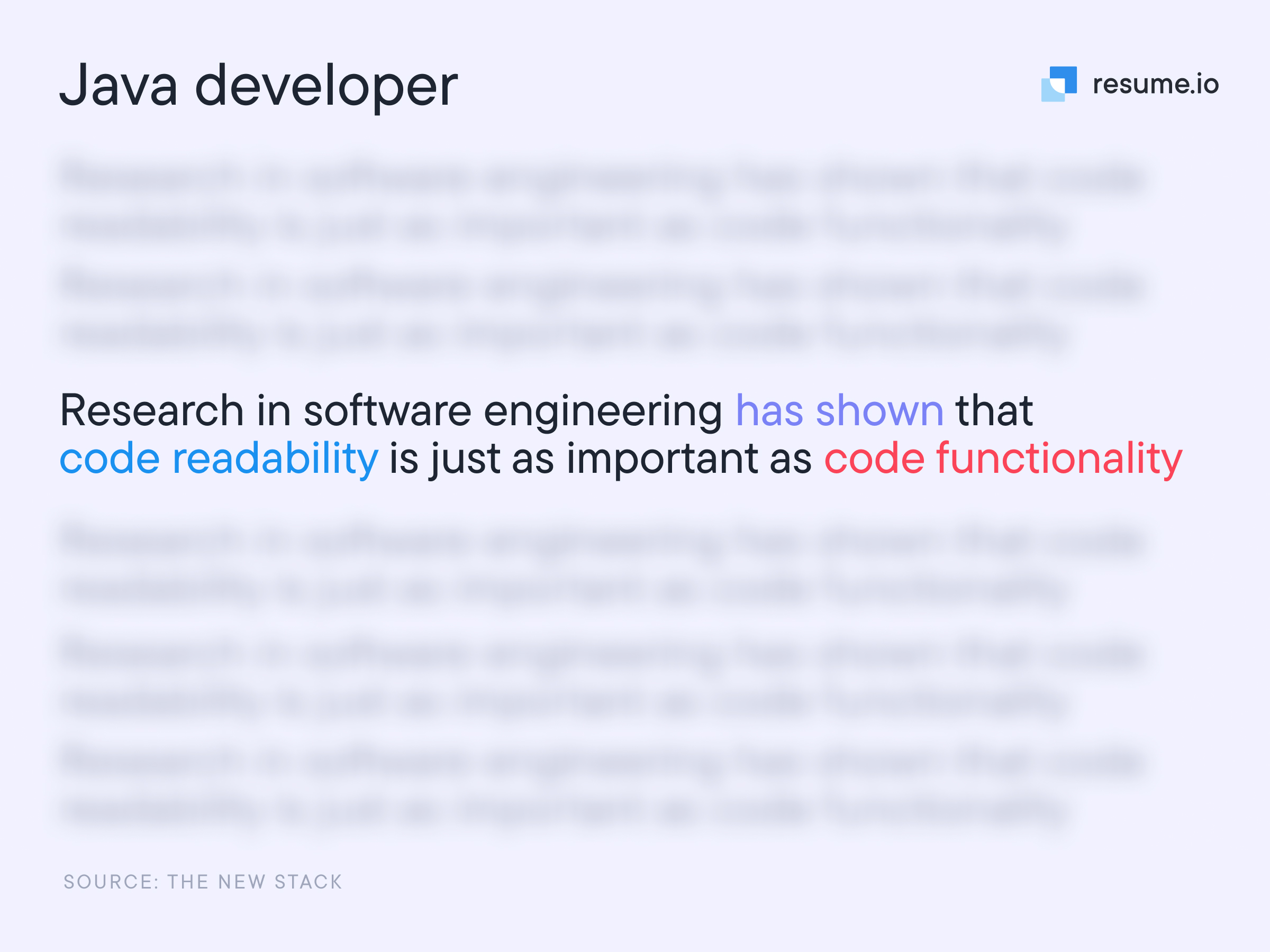
Detail your education and relevant Java Developer certifications
Your education section will be of key interest to employers looking for a Java developer. After all, there are many ways into this career path. You’ll need to list your qualifications clearly in reverse chronological order. If you have an extensive education, you should only include the most relevant and/or recent qualifications, certifications, or awards on your CV.
Here are some education and training opportunities you may choose to list on your CV:
- Formal higher education: A popular route into becoming a Java developer includes a degree in Computer Science, Information Technology, Software Development, or similar.
- College courses and entry-level work: Alternative ways into the profession include completing a college course, such as an A Level in Computing or a Level 3 Certificate in Programming. You would usually follow this route by undertaking a trainee position in a professional setting.
- Courses and training: Embarking on training, java bootcamps and certifications can help you build your hard skills. Remember to list any such certifications, such as Oracle Certified Professional Java Programmer or even courses introducing you to Java, on your CV.
BSc Data Science, University College London, London
- Relevant coursework: Data Structures and Algorithms, Software Engineering, Database Systems
Oracle Certified Java Programmer (OCJP)
Amazon Web Services (AWS) Certified Developer - Associate
Pick the right CV layout and design for a Java Developer CV
Your CV will only impress if you also prioritise the UX for the hiring manager. That means considering the layout and design. You want to ensure it’s both appealing at a glance and its content is easy to peruse.
As a creative problem-solver, consider a clean format with good spacing across your CV so that you don’t sacrifice readability. If you want to highlight the creativity associated with your role, you could consider a template that has a pop of colour.
If graphic design is not your cup of tea, we’ve got you covered. You can choose from one of our many field-tested CV templates. With a wide selection of professionally designed templates, all it takes is a bit of browsing to find one that will get your job application noticed.
Java Developer text-only CV example
Profile
Highly skilled Java Developer with 8 years of experience in designing, developing, and maintaining robust Java applications. Proficient in various Java frameworks, libraries, and tools. Committed to writing clean, efficient, and maintainable code while following best practices and industry standards.
Employment history
Senior Java Developer at Handelsbanken, London
2021 - Present
- Led the development of a large-scale e-commerce platform using Java, Spring Boot, and Angular
- Designed and implemented RESTful APIs to facilitate communication between front-end and back-end systems
- Optimised application performance through code refactoring, caching, and database tuning
- Mentored junior developers, promoting best practices and conducting code reviews
- Collaborated with cross-functional teams to gather requirements and deliver high-quality solutions
Java Developer at Handelsbanken, London
2016 - 2021
- Developed and maintained Java-based applications using Spring Framework and Hibernate
- Implemented unit and integration tests using JUnit and Mockito to ensure code quality
- Participated in Agile development processes, including Sprint planning, daily stand-ups, and retrospectives
- Integrated third-party APIs and libraries to extend application functionality
- Contributed to continuous integration and deployment pipelines using Jenkins and Docker
Skills
- Languages: Java, Java EE, JavaScript, HTML, CSS
- Frameworks and Libraries: Spring Boot, Spring MVC, Spring Data, Hibernate, JPA, JUnit, Mockito
- Databases: Oracle, MySQL, MongoDB
- Tools: Git, Jenkins, Docker, JIRA, IntelliJ IDEA
- Methodologies: Agile (Scrum, Kanban), Test-Driven Development (TDD), Object-Oriented Programming (OOP)
Education
BSc Data Science, University College London, London
- Relevant coursework: Data Structures and Algorithms, Software Engineering, Database Systems
Oracle Certified Java Programmer (OCJP)
Amazon Web Services (AWS) Certified Developer - Associate
Java Developer job market and outlook
If you’re a budding Java developer, you may have a bright future ahead of you. Once you have some experience under your belt, there are plenty of opportunities to step into more demanding roles, such as becoming a senior developer or managing a team of budding professionals. London, Manchester, Birmingham, Bristol and Leeds are top hubs for UK tech employment.
According to a report by the Computing Technology Industry Association, tech occupations and tech industry jobs accounted for approximately 6.3% of the UK’s overall workforce in 2022.
What type of salary you can expect as a Java Developer
Software Developers in the UK can expect an annual salary range of £24000 to £70000 a year, according to the National Career Service. As a Java developer, you can likely expect a salary within this range.
Key takeaways for building a Java Developer CV
A career as a Java developer demands continual education and excellent communication skills. A flare for creativity is essential when confronted with challenging problems. These are all aspects that your CV is perfectly positioned to highlight.
When designing your CV, consider taking advantage of our CV builder to craft an eye-catching document. It might just take some pressure off during your job seeking journey!

